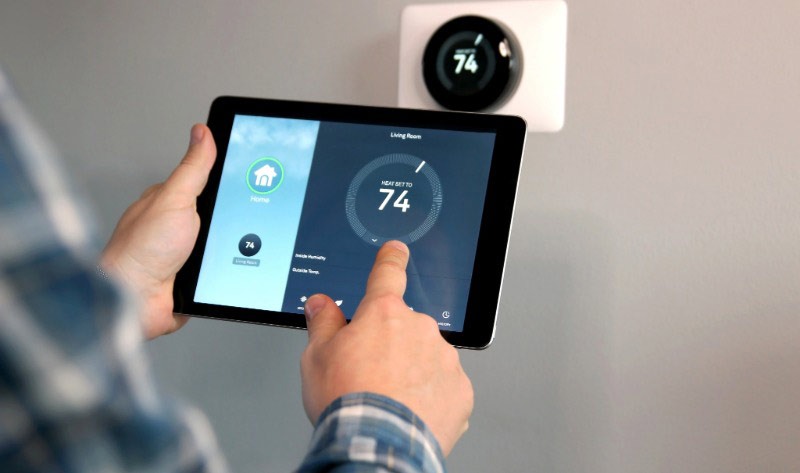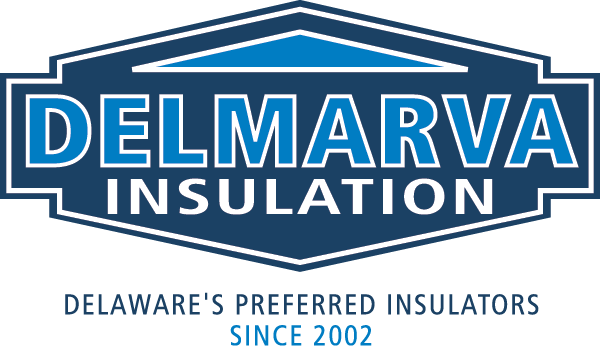Whether you’re ready or not, winter will be here soon. Here in Delaware, that means dealing with freezing temps, surprise Nor’easters, and plenty of gray, chilly days. Delaware’s climate is known for its cold winters and unpredictable storms, especially along the coast. Staying warm isn’t just about comfort, it’s about saving money, too.
The DNREC (Department of Natural Resources and Environmental Control) puts it simply: “Everyone can do simple things around their residence to help make their homes more comfortable during cold winter days, reduce the amount spent on heating costs, and do your part in reducing the carbon in our air that contributes to global warming.”
We waste more energy than we realize every winter. This is because a lot of heat escapes through under-insulated attics and tiny penetrations you can’t even see. That’s why now is the time to prepare your home. Let’s walk through five effective steps (plus a few bonus tips) to help you stay warm, lower your bills, and protect your home all winter.
1. Schedule a Furnace Tune-Up
Your heating system doesn’t get a break in winter, so keep it running efficiently. Have a professional service your furnace to clean and inspect it before the season hits hard. A tune-up improves efficiency, prevents breakdowns, and even helps protect against frozen pipes.
Also, replace your air filters regularly. Be sure to check them monthly and change them at least every three months. Clean filters help maintain better airflow and can play a part in helping to lower your energy bills.

2. Seal Air Leaks in Your Home
Your attic is the biggest culprit for heat loss. Seal it first, then check your windows, doors, outlets, and recessed lights for leaks too. All these tiny leaks add up quickly.
The DNREC’s winter checklist suggests closing your curtains at night, opening them on sunny days, and checking for drafts. Weatherstripping and caulking are quick air sealing solutions. You can also roll up a towel to block the draft under your door as a temporary fix.
Sealing the tiny leaks around your home can add up to big savings. In fact, you can save an average of 15% on your heating and cooling costs when you seal and insulate your home. Consider calling in a pro to seal up your home’s air leaks to ensure every area is covered before winter arrives.
3. Upgrade Your Insulation
Insulation is a thermal blanket that slows the flow of heat in and out of your home. Insulating your attic is the most cost-effective place to start. Delaware’s current building code follows the 2018 International Energy Conservation Code (IECC). It requires new homes to have a minimum insulation R-value of R-49 in the attic. That requirement may increase to R60 if and when the 2021 IECC is adopted. It’s also important to insulate your water heater and pipes to hold in heat.
The DNREC notes that “many families have cut their energy bills by making basic energy efficiency upgrades or taking energy conservation measures” such as these.
4. Use a Smart Thermostat
(and Smart Habits)
Set your thermostat to 68°F when you’re home and lower it when you’re out or asleep. Reducing your thermostat’s setting by 7°–10°F for eight hours a day can even help you save up to 10% a year on your heating and cooling costs. It’s also important not to crank your thermostat up. It doesn’t heat your home faster but instead wastes energy.

Consider the perks of a programmable or smart thermostat for your home. They auto-adjust based on your schedule, so you stay warm without thinking about it. Most homes see about an 8% drop in energy use, or about $50 in savings a year, with these types of thermostats. But it’s important to use your thermostat correctly to maximize its savings.
5. Reverse Your Ceiling Fans
Set your fans to run clockwise at low speed during winter. This creates an updraft that pushes warm air near the ceiling back down to where you are. While it won’t heat the room, it makes the space feel warmer by redistributing the warm air.
Bonus Tips
- Weatherproof your windows and doors for more comfort and less heat loss.
- Use a cool mist vaporizer or humidifier to keep your home at 30–50% humidity. It can help your immune system and ease symptoms like a sore throat from a cold or the flu.
- Check your smoke and CO detectors.
- If you’re building or renovating, consider energy-efficient upgrades early on.
We’re Here to Help You Stay Warm and Save Money
Winter can be tough on your home, your wallet, and your health. It’s also when cold viruses spread. If you’re feeling under the weather, remember to:
- Stay home
- Drink plenty of fluids
- Wash your hands
- Soothe a sore throat with an
- 8-ounce glass of warm salt water (1 teaspoon of salt)
- or even ice chips.

While there’s no cure for the common cold, staying warm, staying hydrated, and using decongestants, antihistamines, and pain relievers can help keep your symptoms from lasting longer.
When it comes to energy savings, Delmarva Insulation has you covered. We’ve been serving Delaware homeowners since 2002 with trusted, expert insulation and air sealing service. Whether you need air sealing, attic insulation, or a whole-home upgrade, we offer reliable, local help and the best products in the region.
Contact us today for a free estimate and let us help you get your home winter-ready, the smart, energy-efficient way.
References
Climate.uchicago.edu. (n.d.). Are smart thermostats worth the money? University of Chicago Climate. https://climate.uchicago.edu/news/are-smart-thermostats-worth-the-money/#:~:text=The%20Environmental%20Protection%20Agency%2C%20for,on%20bills%2C%20or%20about
Delaware Department of Natural Resources and Environmental Control. (2016, December 5). DNREC division of energy climate offers tips to keep costs down and chase away chills. News.delaware.gov. https://news.delaware.gov/2016/12/05/dnrec-division-of-energy-climate-offers-tips-to-keep-costs-down-and-chase-away-chills/
Delaware Department of Natural Resources and Environmental Control. (2018, October 30). DNREC encourages Delawareans take action national weatherization day Oct. 30. News.delaware.gov. https://news.delaware.gov/2018/10/30/dnrec-encourages-delawareans-take-action-national-weatherization-day-oct-30/
Delaware Department of Natural Resources and Environmental Control. (2021). 2021 IECC changes residential [PDF]. https://documents.dnrec.delaware.gov/energy/buildings/2021-IECC-Changes-Residential.pdf
Doctor on Demand. (2025, July 1.). 5 things to do in the first 24 hours of a cold or flu. Doctor on Demand Blog. https://doctorondemand.com/blog/cold-and-flu/5-things-to-do-in-the-first-24-hours-of-a-cold-or-flu/
ENERGY STAR. (n.d.). Seal and insulate with ENERGY STAR: Rule your attic. EnergyStar.gov. https://www.energystar.gov/saveathome/seal_insulate/rule_your_attic
Gundersen Health System. (n.d.). 5 ways to kick the common cold. Gundersen Health. https://www.gundersenhealth.org/health-wellness/staying-healthy/5-ways-to-kick-the-common-cold
Mayo Clinic. (n.d.). Cold remedies: What works, what doesn’t, what can’t hurt. Mayo Clinic. https://www.mayoclinic.org/diseases-conditions/common-cold/in-depth/cold-remedies/art-20046403
Mayo Clinic Health System. (2022, April 12). 7 ways to combat coughs and congestion. Mayo Clinic Health System. https://www.mayoclinichealthsystem.org/hometown-health/speaking-of-health/7-ways-to-combat-coughs-and-colds
Times Now News. (2024, December 23.). 5 ways you can beat the cold wave and stay safe as mercury drops. Times Now News. https://www.timesnownews.com/health/5-ways-you-can-beat-the-cold-wave-and-stay-safe-as-mercury-drops-article-116590429
University of Delaware. (n.d.). Delaware’s climate. Climate.udel.edu. https://climate.udel.edu/delawares-climate/
U.S. Department of Energy. (n.d.). 5 tips to help you save on energy bills this winter. Energy.gov. https://www.energy.gov/articles/5-tips-help-you-save-energy-bills-winter
U.S. Department of Energy. (n.d.). Insulation. Energy.gov. https://www.energy.gov/energysaver/insulation
U.S. Department of Energy. (n.d.). Programmable thermostats. Energy.gov. https://www.energy.gov/energysaver/programmable-thermostats
WBOC. (2024, November). DNREC issues ways to conserve water for colder seasons. WBOC.com. https://www.wboc.com/news/dnrec-issues-ways-to-conserve-water-for-colder-seasons/article_8ecdb9ac-9499-11ef-8348-dfbe7b7b5b8d.html


